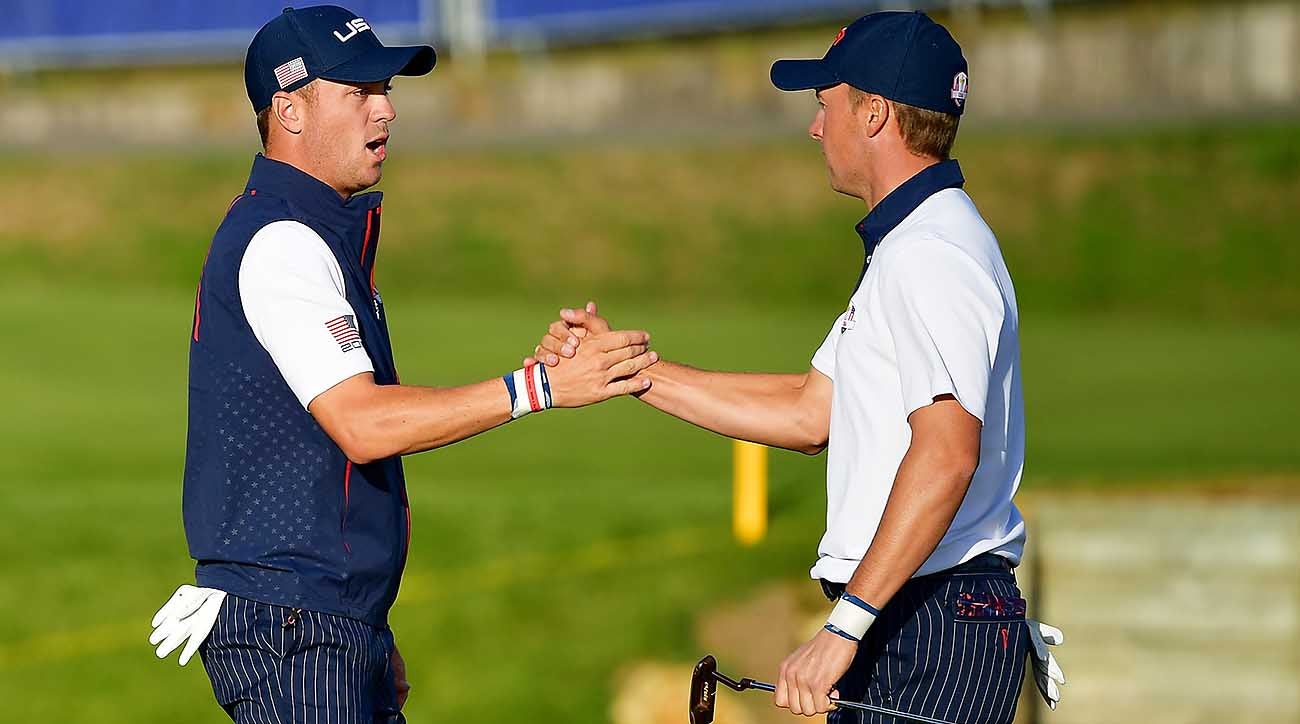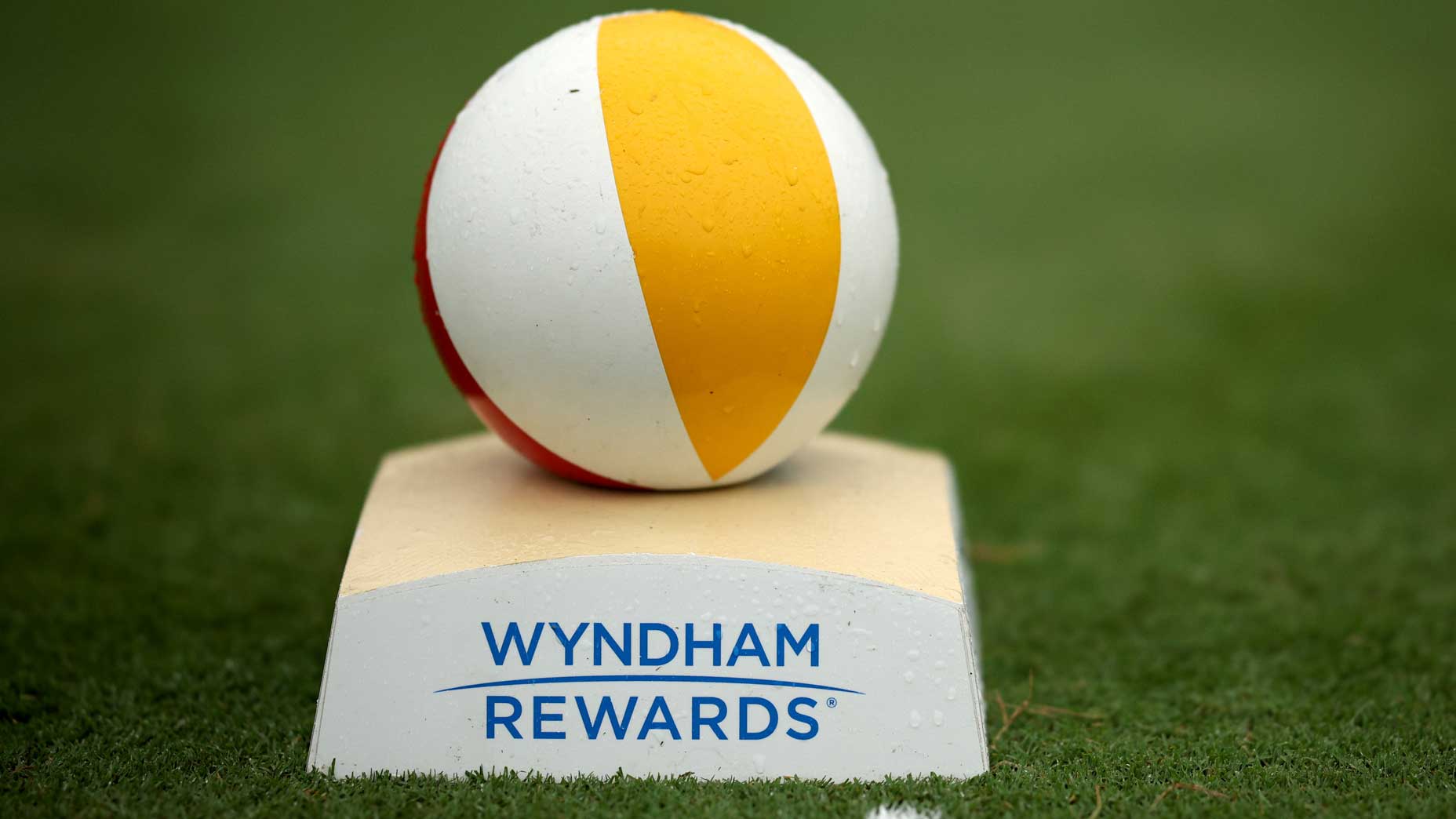SAINT-QUENTIN-EN-YVELINES, France — The U.S. is down. There are more dramatic adjectives you could use here, but let’s just start with that simple fact. They trail by four points, 10-6, with 12 singles matches on tap for Sunday afternoon. The situation is dire, but the outcome is not decided. Not yet.
Here’s one positive: Team America was able to scratch out a 2-2 session in Saturday afternoon foursomes. On Friday the U.S. was creamed 4-0 in the same format, so the improvement was both welcome and necessary. Had the U.S. fallen farther behind, the only thing left to discuss would be this ballyhooed team’s place in pantheon of all-time disappointments, and which Euro might sink the winning putt Sunday afternoon. Instead, playing in the final match of the day, Justin Thomas and Jordan Spieth lost their first two holes to Ian Poulter and Rory McIlroy before flipping it around and closing them out on the 14th hole. Quite a swing. That left the U.S. in a four-point hole.
“We went out and did what we needed to do, and that was to get a point for our team, and we did so in both sessions; and not just to do so but to hit shots when we needed to the most and make putts when we needed it to the most,” Thomas said. “We can get a lot out of today that we can potentially use tomorrow to our benefit.”

Down but not out. Four points is a significant number. It’s steep, but it’s been done before. Expect the U.S. to use history as a source of motivation.
A Sunday U.S. comeback would still be one of the most stunning ever. In the 41 previous editions of the Ryder Cup, only six times has a team trailed entering the final session — by any margin! — and rallied to take the Cup. In 1929, the second Ryder Cup ever, Great Britain made up a one-point gap to win 7-5. In 1949 the U.S. erased a two-point deficit in singles. In ’57, Great Britain returned the favor. And in 1995, Europe again erased a two-point lead while shocking the U.S. at Oak Hill.
Most relevant to the current U.S. predicament, there have been two four-point Sunday comebacks, and they are two of the most famous Ryder Cups ever: the 1999 event at Brookline, forever etched in lore for Justin Leonard’s miracle birdie putt, a hideous set of polo shirts and a wild and slightly premature celebration.
And then there was 2012 at Medinah, where Europe erased a four-point gap of its own in singles. That European team got a late spark Saturday evening when Ian Poulter stole a point in the final match of the session. Many players on that team would later cite Poulter’s match as the moment that gave them momentum and inspiration heading into the final day. In both ’99 and ’12, the winning teams squeaked it out by one point, 14.5 – 13.5. There was no margin for error.
European team captain Thomas Bjorn is aware of this history. “I really thought that 2-2 this afternoon was something that would be really good for us. It was something that when we started those foursomes, I felt like, if we can come out of this with 2-2, it would be a good place for us to be,” he said on Sky TV Network as the sun set behind him. “We need every single man on the golf course to do their bit, and we’ve got to get out there and really, really, really play hard and be determined to win this back.”
That’s the right mentality. On Sunday each man gets his shot. History is waiting.






